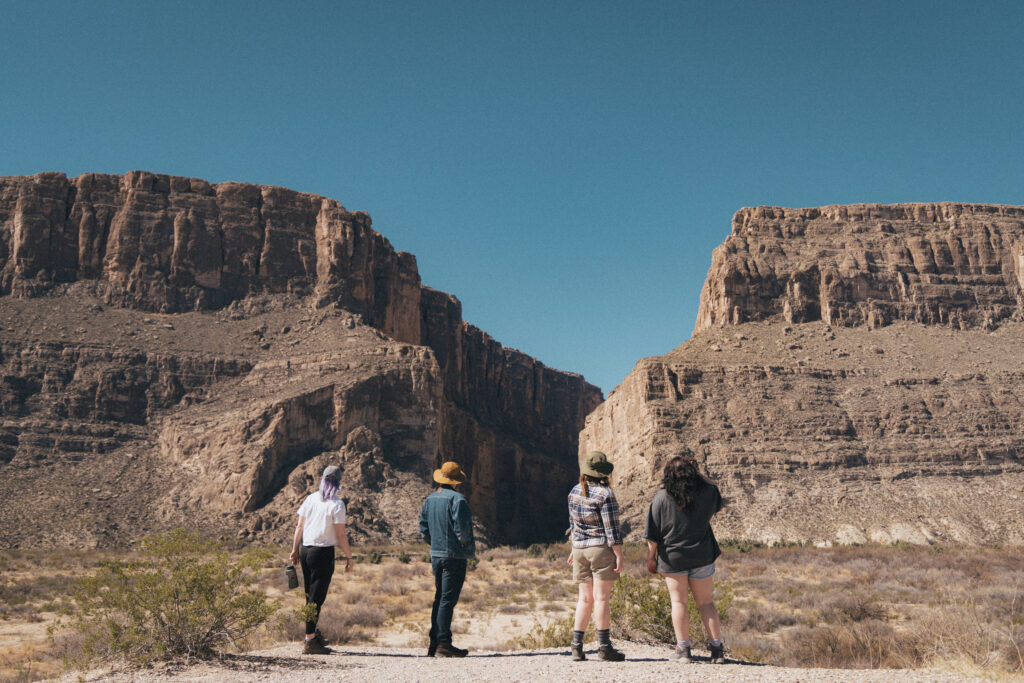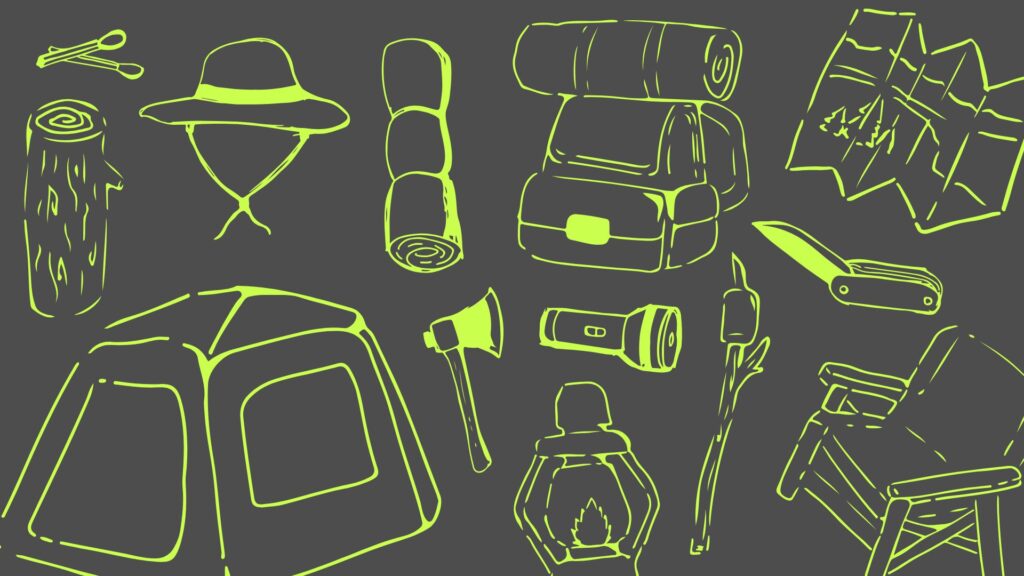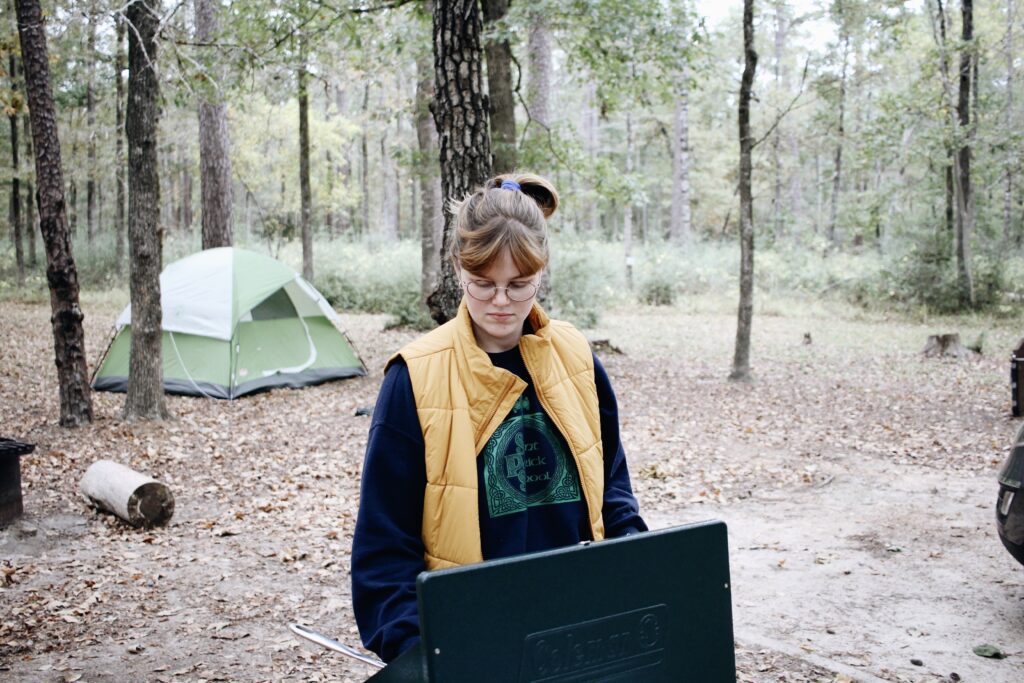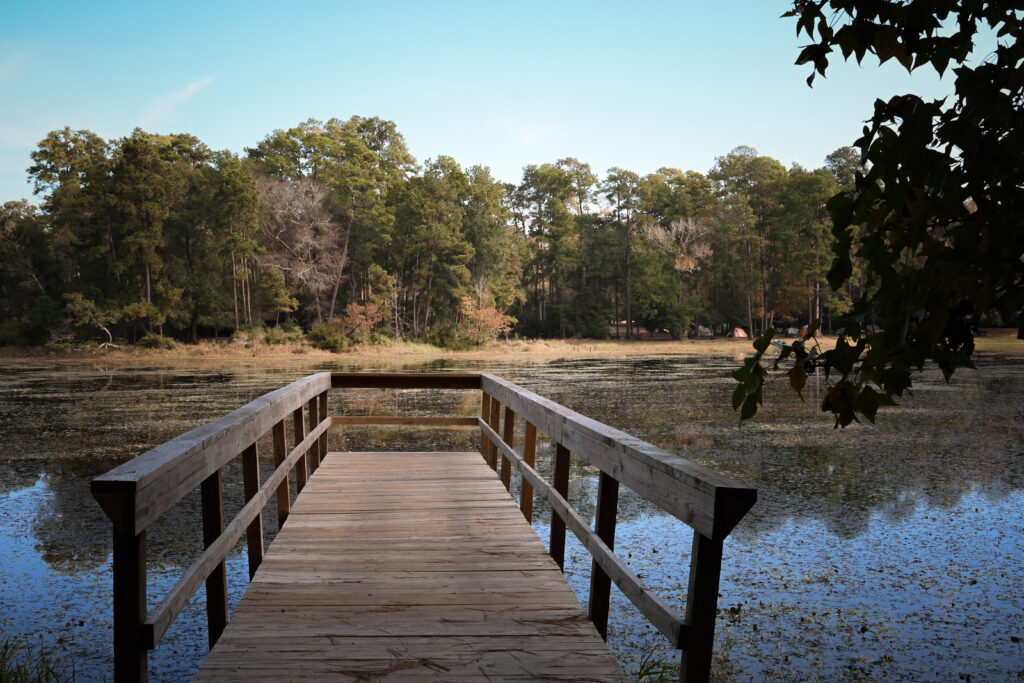Camping is a great way to get outdoors, connect with nature, and spend quality time with friends or family. But planning a group camping trip can be overwhelming, especially if you’re not used to organizing large events or navigating the logistics of camping. However, with a little bit of preparation and communication, you can plan a fun and memorable group camping trip that everyone will enjoy.
Tips for planning a group camping trip
In this blog post, we’ll walk you through the key steps of planning a group camping trip. From choosing a campground to assigning roles and responsibilities to gear and supplies, meal planning, transportation, and safety considerations, we’ll cover all the essentials you need to know to make your group camping trip a success.
1. Determine the basics.
Before you start planning the details of your group camping trip, you need to determine the basic information that will guide your planning process. Here are some key considerations:
- Date: The first step is to decide when and where you want to go camping. Consider the availability of your group members, the weather, and the type of camping experience you’re looking for. Coordinating dates can be tricky. Our recommendation is to pick three to five dates that work and send a poll to your group. Or if the date is far enough out— just pick one and make sure that everyone marks their calendars!
- Location: Do you want to go camping in the mountains, near a lake, or in a forest? Once you’ve decided on a location, research nearby campgrounds and choose one that fits your needs.
- Group size: Determine the number of people who will be joining the camping trip. This will help you choose a campsite that can accommodate your group and plan for supplies and equipment.
- Budget: Figure the budget for the trip and decide how expenses will be split among the group. Consider costs such as campsite fees, transportation, gear rentals or purchases, food, and activities.
Once you’ve established these basic details, you can move on to planning the specifics of your group camping trip.
2. Understand the different roles.
Organizing a group camping trip can be a lot of work, so it can be helpful to delegate tasks and responsibilities to group members. Of course, you can do it yourself— but you’ll have a lot to keep up with!
Here are some key roles and responsibilities to consider:
- Trip leader: Choose a trip leader who will oversee the planning process and serve as the main point of contact for the group. This person should be organized, communicative, and comfortable making decisions on behalf of the group.
- Meal planning: Assign someone to be in charge of meal planning and preparation. This person can create a menu, make a grocery list, and organize the cooking schedule.
- Transportation: Choose someone to be in charge of transportation to and from the campsite. This person can coordinate carpooling or arrange for a rental vehicle if necessary.
- Activities: Pick someone to be in charge of planning group activities, such as hiking, fishing, or games. This person can create an itinerary and make sure that everyone has the necessary equipment or permits for each activity.
By assigning roles and responsibilities to group members, you can distribute the workload and ensure that everyone is involved in the planning process. This can also help to build excitement and anticipation for the trip, as everyone feels invested in its success.
3. Get the right gear and supplies.
Once you’ve assigned roles and responsibilities, it’s time to start thinking about the gear and supplies you’ll need for your group camping trip. Here are some important things to consider:
- Tents: Make sure that everyone in the group has a tent, or plan to share tents if necessary. Choose a tent that is appropriate for the climate and terrain of your camping location.
- Sleeping bags: You’ll also want to ensure everyone has a warm and comfortable sleeping bag or adequate blankets.
- Cooking equipment: Decide what cooking equipment you’ll need, such as stoves, fuel, pots and pans, utensils, and dishes. Make sure that everyone knows how to use the equipment and can help with cooking and cleanup.
- Food: Plan your meals ahead of time and make a grocery list. Consider any dietary restrictions or preferences among the group, and plan for snacks and drinks as well.
- Additional gear: Consider any additional gear that you might need for activities such as hiking or fishing. This might include hiking boots, camp chairs, fishing gear, or bear canisters.
By making a list of necessary gear and supplies, you can ensure that everyone is prepared for the trip and that you have everything you need to enjoy your time in the great outdoors.
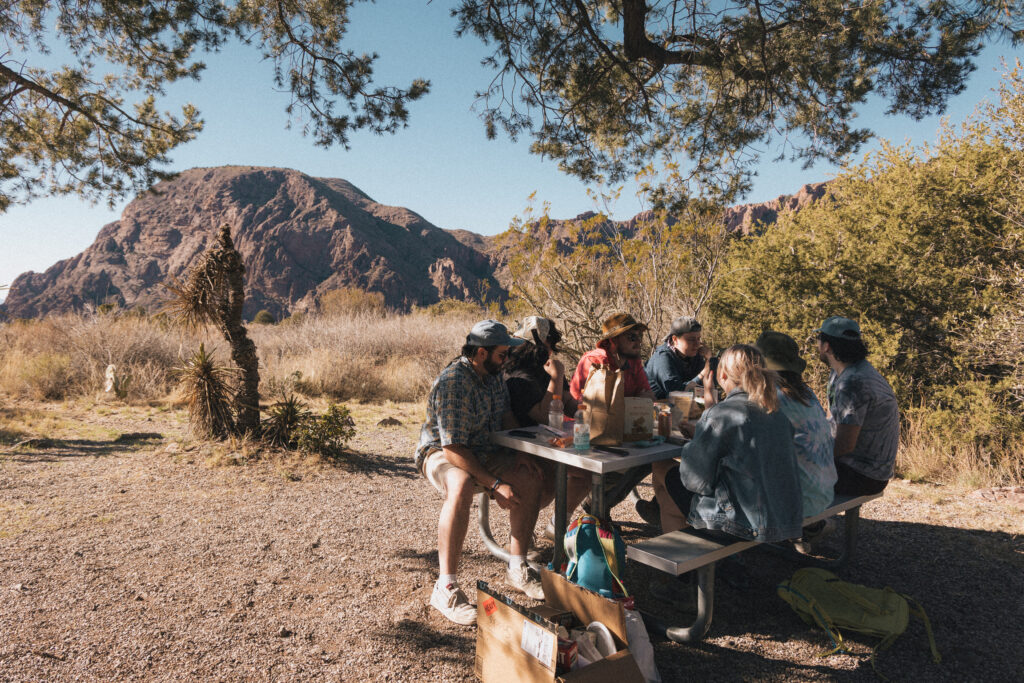
4. Plan your meals.
Food is an essential part of any camping trip, and meal planning is an important aspect of group camping.
1. Start with a menu.
Decide on your meals ahead of time and create a menu. This will help you create a grocery list and ensure that you have all the necessary ingredients.
2. Consider dietary restrictions.
Make sure to ask your group members about any dietary restrictions or preferences. Plan meals that everyone can enjoy, or make accommodations for those with specific needs. Creating a Google Forms poll can be a great way to collect information and keep it in one place!
3. Keep it simple.
Choose meals that are easy to prepare and require minimal cooking time. One-pot meals and foil-pack recipes can be great options for group camping. You’ll also want to consider perishable ingredients and whether you’ll have access to ice during your trip.
4. Share the workload.
Assign different meals to different members of the group, or rotate responsibilities each day. This will ensure that everyone has a chance to contribute and that no one person is responsible for all the cooking.
5. Pack snacks and drinks.
Don’t forget to pack snacks and drinks for the trip. Trail mix, fruit, and energy bars can be great snacks, and make sure to bring plenty of water and other beverages.
By taking the time to plan your meals ahead of time, you can ensure that everyone is well-fed and happy during your camping trip. Plus, cooking and eating together can be a great way to bond as a group and create lasting memories!
5. Work out transportation.
Getting to and from your campsite is an important aspect of group camping, and it’s important to plan your transportation ahead of time. Here are some tips for successful transportation planning:
- Carpooling: Consider carpooling with other group members to reduce the number of vehicles on the road and save money on gas. Make sure to plan out who will ride with whom and who will drive.
- Rental vehicles: If you need to rent a vehicle, make sure to do so well in advance of your trip. Consider factors such as the size of your group, road conditions, and budget.
- Parking: Make sure to check the parking situation at your campsite. Some campsites may have limited parking, so you may need to plan to park off-site and hike in.
- Navigation: Make sure to have a plan for navigating to your campsite. Make sure that everyone in your group knows the route and has a general idea of the area since cell service can be spotty off the beaten path.
Pro tip: If you’re caravaning with several cars, bring walkie-talkies so you can pass messages between vehicles, even if there is no cell service.
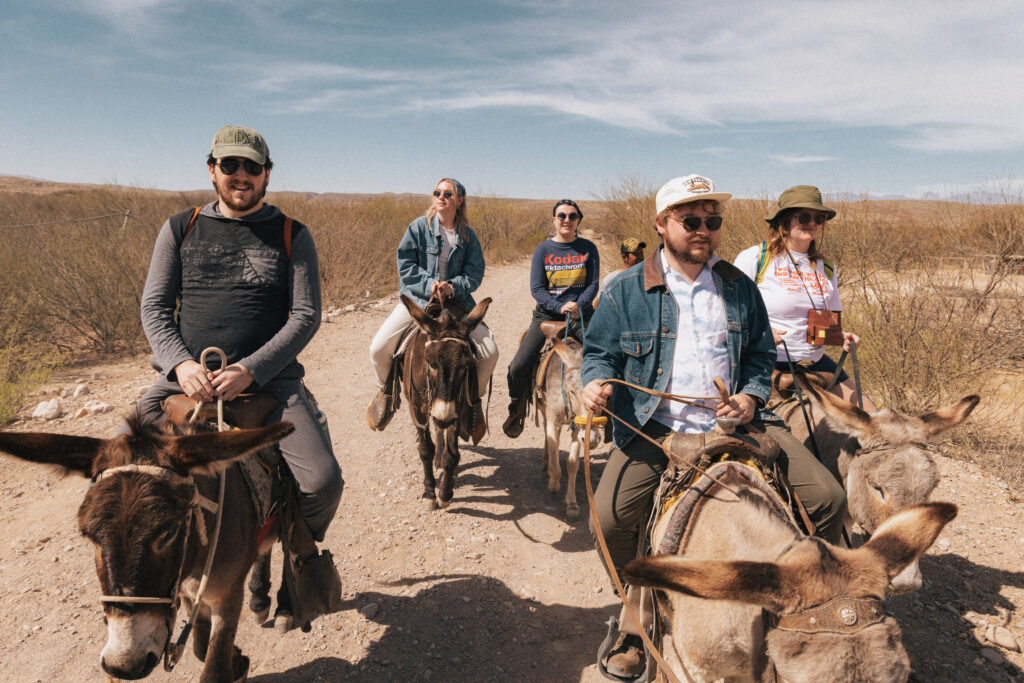
6. Plan your activities and itinerary.
While camping is often a time to relax and enjoy the outdoors, it’s also important to plan some activities to keep everyone entertained. Here are some tips for planning activities and creating an itinerary:
- Research the area: Before your trip, research the area around your campsite and find out what activities are available. This might include hiking trails, fishing spots, or other outdoor activities.
- Plan your itinerary: Create an itinerary for your trip that includes planned activities and downtime. Make sure to leave plenty of time for relaxation and spontaneous adventures.
- Choose group activities: Plan some group activities that everyone can enjoy together, such as a group hike, a campfire, or a game night.
- Consider individual interests: Make sure to plan activities that cater to individual interests as well. This might include solo hikes, fishing or photography excursions, or reading by the campfire.
- Be flexible: Remember that camping is all about enjoying nature and spending time with friends and family. Be flexible with your itinerary and open to changing plans based on the group’s interests and energy levels.
By planning activities and creating an itinerary, you can ensure that everyone in your group has a fun and memorable camping experience. Plus, planning activities ahead of time can help to avoid boredom and keep everyone engaged and excited throughout the trip.
7. Remind everyone of safety considerations.
While camping is a fun and exciting activity, it’s important to prioritize safety to ensure a successful trip. Be sure to go over key safety considerations with everyone in your group.
- Review safety guidelines and rules: Before your trip, review the rules and safety guidelines for your campsite and any activities you plan to participate in. Make sure that everyone in your group is aware of these guidelines and knows how to stay safe.
- Bring a first aid kit: Bring a first aid kit and make sure that someone in your group is trained in first aid. Make sure to pack essentials such as bandages, antiseptic, and any necessary medications.
- Figure out where the nearest hospital is: Make sure that everyone in your group knows where to find the nearest hospital or urgent care.
- Go over wildlife safety: If you’re camping in an area with wildlife, make sure to follow the appropriate safety guidelines. This might include storing food properly, using bear canisters, or making noise while hiking to avoid surprising animals.
- Take a look at weather conditions: Be aware of the weather conditions in the area where you’ll be camping and prepare accordingly. Make sure to pack appropriate clothing and gear, and be prepared for sudden changes in weather.
By prioritizing safety, you can ensure a successful and enjoyable camping trip for everyone in your group. Remember that safety is everyone’s responsibility, so make sure that everyone is aware of the guidelines and procedures for your trip.
Happy travels!
Planning a group camping trip can be a lot of work, but with a little bit of preparation and communication, it can also be an incredibly rewarding experience. By deciding on the basics, assigning roles and responsibilities, preparing gear and supplies, planning meals, organizing transportation, planning activities, and prioritizing safety, you can create a fun and memorable camping trip that everyone in your group will enjoy.
Photos by Patrick Nye, taken on our March 2023 trip to Big Bend National Park!

